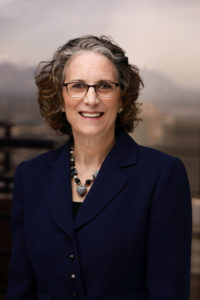 Sampson v. Surgery Center of Peoria, LLC
Sampson v. Surgery Center of Peoria, LLC
Arizona Supreme Court
July 30, 2021
Written By: Eileen GilBride
Plaintiff took her four-year-old son to the Surgery Center, an outpatient surgery clinic, for a scheduled tonsillectomy and adenoidectomy. The procedure was performed under general anesthesia. The doctor remained in the operating room with the patient for about 30 minutes after the surgery. The boy was awake and crying, and was transferred to a post-operative anesthesia care unit. He was released after an hour. Plaintiff took him home and put him to bed. Two hours later, he was found not breathing and could not be revived.
Plaintiff sued. Her expert opined that the doctor fell below the standard of care by releasing the boy too soon. The Surgery Center moved for summary judgment arguing that the standard of care expert failed to demonstrate that the Surgery Center’s actions proximately caused the boy’s death. Plaintiff argued that causation was “obvious” and thus no expert causation testimony was needed.
The trial court granted summary judgment, ruling that the expert’s testimony failed to establish causation; and that the question of whether the boy would have survived with longer observation was beyond the ken of the average juror and thus needed expert testimony. The court of appeals reversed the trial court’s ruling, concluding that a reasonable jury could find that the standard of care for observation was three hours, and could thus “infer” that the early discharge was the probable cause of death.
The Supreme Court vacated the court of appeals’ decision and ordered summary judgment reinstated. In Arizona medical malpractice cases, causation must be established by competent expert testimony, except where causation is “readily apparent.” The Court gave as an example a dentist who leaves a piece of metal imbedded in a patient’s jawbone. However in Sampson, causation was not readily apparent. The parties disputed the cause of death—whether it was from a disseminated strep infection or a swollen and obstructed upper airway. Even Plaintiff’s own expert could not say that longer observation would have prevented the boy’s death; he said it “could have” allowed Surgery Center personnel to resuscitate the boy. That is not sufficient to prove causation. A jury cannot infer causation where the expert himself could not, or would not, say that discharging the boy after an hour was the probable cause of death. The Court said, “In a case where the standard of care or the cause of death is disputed on a matter requiring medical knowledge to resolve, it is difficult, if not impossible, to imagine a situation where lay jurors, untrained in medicine or medical procedure, could properly determine liability absent expert guidance.”
Eileen GilBride leads JSH’s Appellate Department. She focuses her practice on representing clients in federal and state appellate matters and dispositive motions. She also counsels and assists trial lawyers in the substantive areas of their practices, from the answer stage through the post-trial motion stage. Eileen has handled more than 400 appeals at every level of the state and federal courts, in Arizona and other states, which have resulted in more than 80 published decisions.